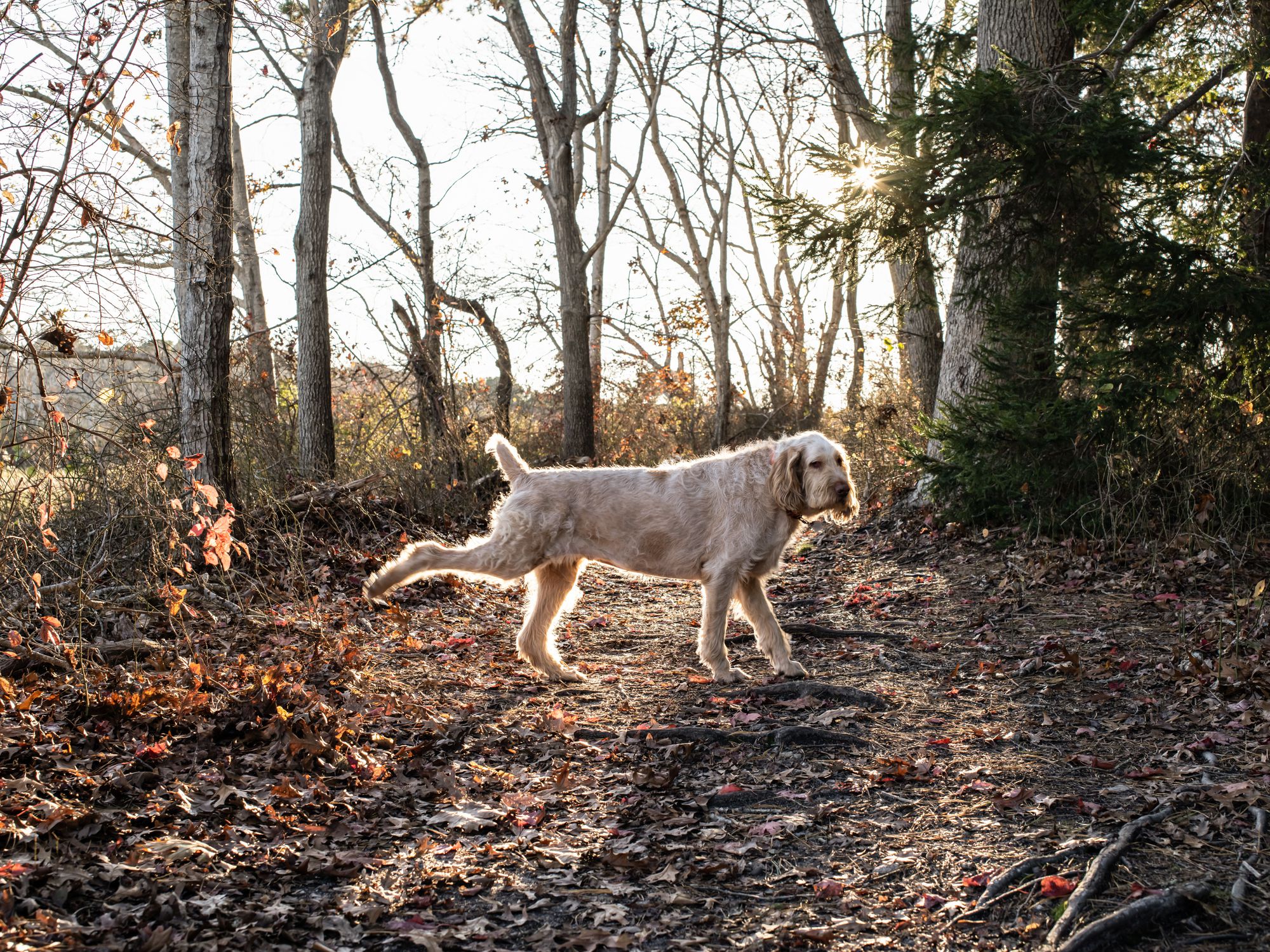
Ever seen your dog kick its hind legs when they are done with their business? When a dog kicks their rear legs, it looks like they’re wiping them.
This behavior can vary in intensity. Dogs may kick their paws once, then walk away. Other dogs will kick multiple times and switch legs.
Dog parents may be embarrassed by their dogs’ kicking. Their dog might kick up dirt clods and grass clumps. You may even have been told off by other homeowners who are upset that your dog is tearing up their lawns.
Why do dogs kick dirt and grass after pooping? What should you do about this?
Does it normal for dogs to kick after they poop?
Ground-scratching is the term used to describe kicking your dog’s hind legs following elimination. This is normal behavior for dogs. Dogs and other wild canids such as coyotes and wolves have shown this behavior. It’s believed by many animal scientists that it is a way for dogs to communicate.
The act of scratching the ground has been described as a composite communication signal that combines chemical and visual elements. Kicking is used as a display to other dogs, and can help disperse the smell of urine. The slashes in the dirt are a longer-lasting mark to show the presence of the dog.
The Scent of Dispersal
Scientists believe that this behavior is helpful in scent distribution. It’s not just about spreading the dog’s urine, but also leaving odors on its paws. Dogs’ interdigital or paw pad pads can release scents.
Visual Display
Scientists believe that dogs are sending visual messages to other dogs. Dogs usually score the surface with slashes as part of scratching. The slashes are a story in themselves to dogs who see them, even if there is no one else around.
The ground-scratching acts as a display to other dogs when other dogs are present. A study conducted by Bekoff in 1979 on free-ranging canines showed that the likelihood of ground-scratching was higher when there were other dogs physically present. Ground-scratching is usually triggered by a dog’s raised leg show, whether or not it has urinated. The scratching can occur even after defecation.
Scientists observed that other male dogs who scratched the ground were often avoided, during and after this act. The presence of slashes or urine on the floor did not stop other dogs.
Do certain dogs kick more after pooping or peeing than others?
All breeds and sizes of dogs can scratch the ground. Bekoff observed that about 9% of males and 5% of females displayed this behavior. When the free-ranging dogs had conflicts with dogs outside their pack, they were more likely to scratch at the ground.
In another research study, it was found that senior dogs were more inclined to scratch the ground than adult or juvenile dogs. (McGuire 2016). The senior dogs were more likely to scratch the ground after defecation. The dogs that scratched the ground after defecating also had at least one instance of this behavior following urination.
The scratching of the ground does not occur every time a dog urinates or defecates. It can also happen after the dog simply smells the ground.
Why do dogs kick their hind feet after pooping?
Here are some reasons for why dogs scratch the dirt or kick up the grass after going to the toilet.
Marking the Territory
According to a study, dogs that roam free are more likely to scratch the ground along their territorial boundary. If the dog belongs to someone else, pet parents might notice that ground scratching is more common in their backyard, near their home, or in areas around their property.
Urban dwellers may find that their dog is more likely to display this behavior when they are in a park, near the apartment, or on the street where it’s located.
The dogs may use this to alert other canines in the vicinity of the places that they are familiar with. When they kick the grass or dirt with their back paws they also leave a scent.
Social Display
The behavior of scratching the ground was most common in dogs that roamed freely. It occurred more often when they encountered unfamiliar dogs. In a pack of free-ranging dogs, the higher-ranking dogs are more inclined to scratch. In one study, other dogs avoided dogs who scratched the ground.
It may have been a way for dogs to deter other dogs from coming near them. This behavior is used to “intimidate” other dogs, according to one researcher. As visual markers, slashes are made in the soil. These scratches can be hard to detect when dogs are kicking their feet up on the sidewalk.
It is not necessary to prevent your dog from kicking its feet when it poos or pees unless the dog kicks up so much dirt or grass that their nails and paw pads are damaged.